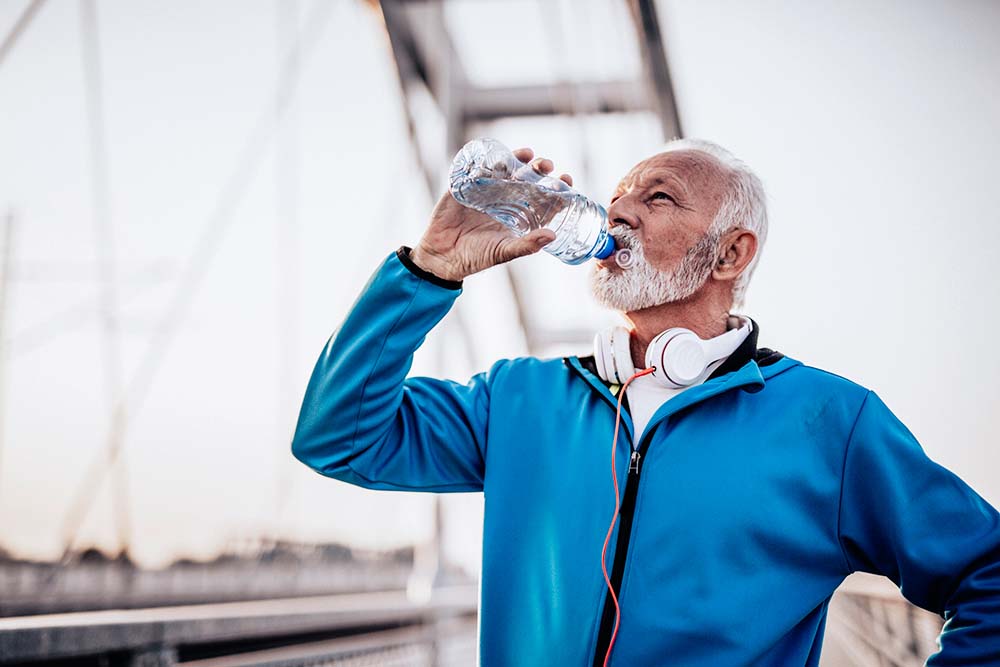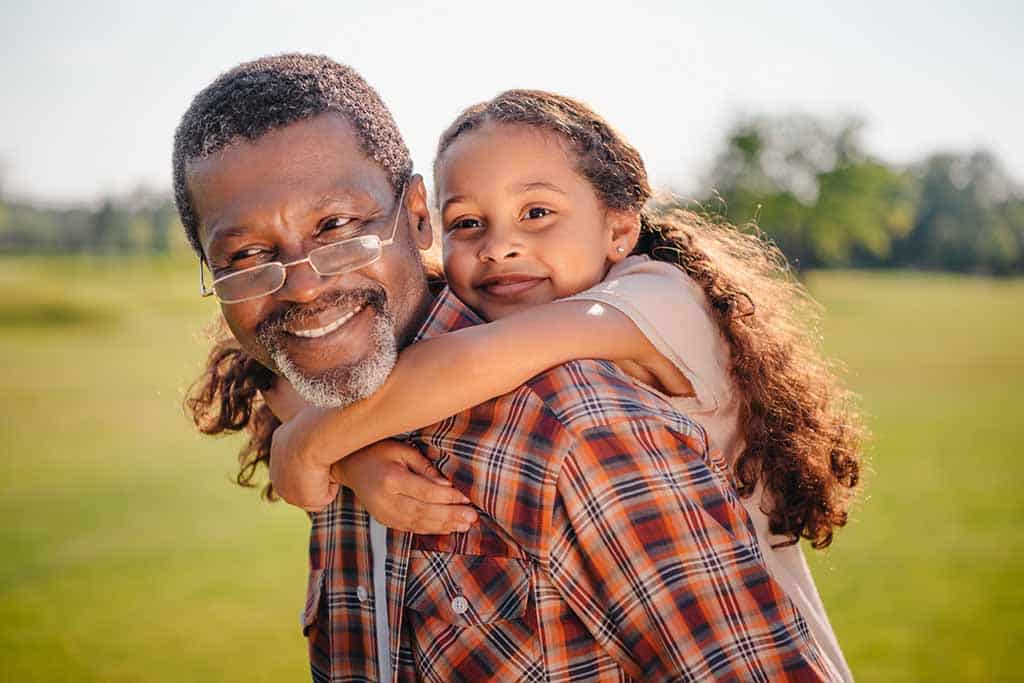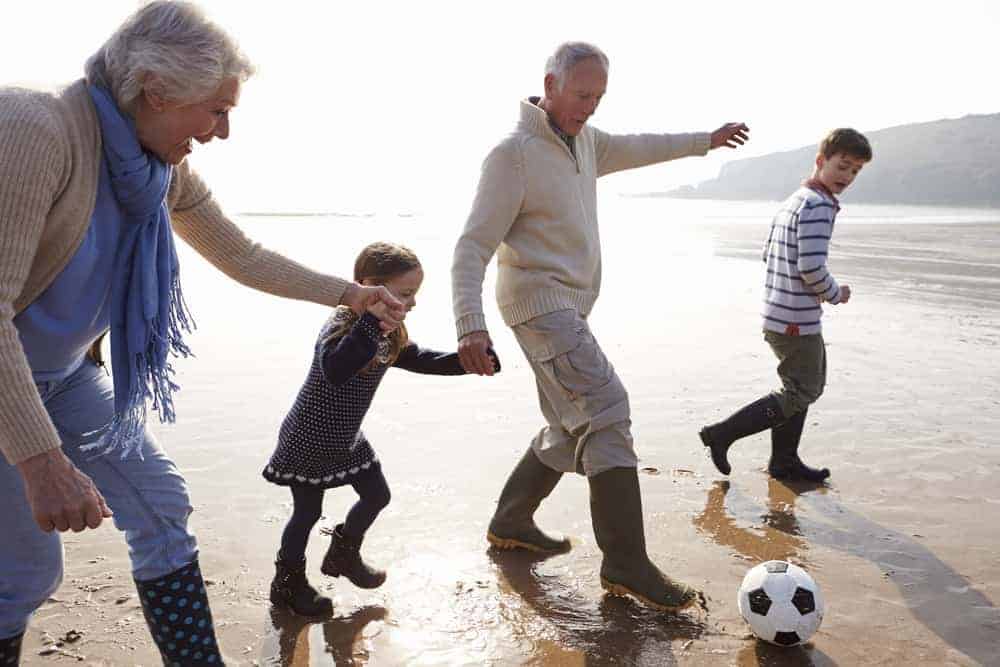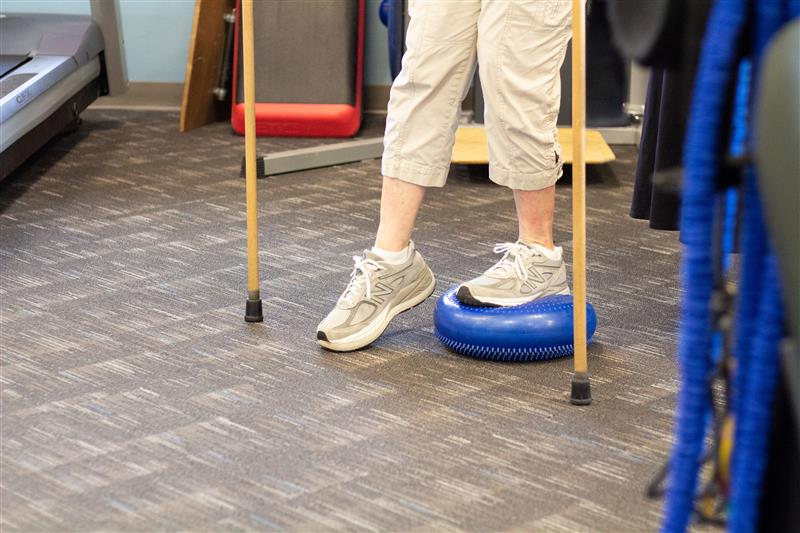For most of human history, people didn’t have to worry about living longer. We didn’t even know how long we were going to live! But now that we’ve figured out how to keep ourselves alive past 70 years old, we need something else: a way to stay young. That’s where exercise comes in. Your grandparents might have been able to get away with not exercising as much as they should have when they were younger, but you don’t have that luxury anymore! Luckily there are still some ways you can stay young and healthy while spending time with your grandkids—and they’re all based on exercise to keep you youthful.

Exercise Isn’t a Fad. It’s an Evolutionary Necessity
Physical activity is one of the most critical aspects of human health and well-being, but it also plays an essential role in the evolution of the human species, and it’s proven that exercise keeps you youthful. Research suggests that we are biologically adapted to be physically active—and that physical activity is key to our evolutionary history. According to a study, humans evolved over millions of years as endurance hunters, walking long distances daily while hunting for food. We were designed by nature for this type of existence because it was necessary for survival.
The consequences of not exercising or too much sitting are pretty profound. Research shows that physical inactivity increases the risk of heart disease, type 2 diabetes, and some cancers. Physical inactivity is also associated with an increased risk of premature death, leading to depression and anxiety. So, exercise is necessary to live a long and healthy life.
The Active Grandparent Hypothesis
Lieberman and his co-authors suggest the need to be active in “the grandparent hypothesis,” which explains why our bodies are designed this way. According to the hypothesis, physical activity in humans evolved as a way of extending life span. The theory suggests that humans need to be physically active to survive, and inactive individuals would not live as long. Thus, the idea is that our bodies evolved to be able to do more physical activity than other species. In past generations, before medicine, the average person lived only as long as they were healthy.
Today, medicine is our backer in extending our lives when we get sick in our 50s or 60s. In the past, if you were ill or injured, you died. But that doesn’t mean we’re healthier—it just means medical science has caught up with us and made it possible for us to live longer despite being less healthy overall.
Risks Associated with Sedentary Behavior
A lack of physical activity in older adults causes the sarcopenic cascade, which is the loss of muscle mass and strength. This leads to a decline in daily functioning and quality of life and an increased risk for falls, frailty fractures, cardiovascular disease, cancer, and mortality.
Older adults are less active than younger adults and have a higher prevalence of sedentary behavior. Sedentary behavior is defined as sitting for more than 3 hours per day, and the average American spends over 9 hours per day engaged in this behavior. The health risks associated with sedentary behavior include poor cardiorespiratory fitness, increased fat mass, insulin resistance, and type 2 diabetes mellitus.
Exercise is an excellent way to help deal with many of these issues and is considered the best way to reduce the health risks associated with sedentary behavior. It also enables you to deal with mental problems that become apparent as you age. Scientists have postulated that there is a biochemical reason for this phenomenon: reduced levels of stress hormones and increased levels of serotonin, dopamine, and other neurotransmitters that make you feel good.
Strengthening Muscles So They Can Handle More Stress
So the idea here is exercise allows your body to become more resilient by strengthening your muscles so they can handle more stress than they would otherwise be able to do on their own without a good workout program. It also helps keep your mind sharp by increasing brain power and ensuring you get enough oxygen throughout every part of your body.

How Playing with Your Grandkids Keeps You Youthful
Grandkids can be excellent motivation for older adults to stay physically active. Playing with your grandkids can help you stay young, live longer, reduce disease, and prevent high blood pressure! The benefits are unlimited, and the payoff for everyone involved is enormous. You’re passing on your wisdom and knowledge to the next generation, and being around them keeps you young, too.
Psychologists say that playing with your grandchildren is one of the best ways to keep your brain active and alert. This can make it harder for Alzheimer’s, or other forms of dementia, to take hold of your mind.
You can also gain health benefits by engaging in physical activities with your grandchildren, such as playing tag or hide-and-seek. You’ll increase your heart rate and improve your cardiovascular health by being active. Also, interacting with your grandchildren is a great way to relieve stress and unwind from the daily grind.
Physical Activities Grandparents Can Do To Keep Youthful
Regarding physical activities, there are plenty of options for grandparents to engage with their grandchildren. If you’re looking for something active and fun, consider taking a hike or bike ride together. You can also play catch and other games that involve tossing around a ball. For example, playing catch allows you to exercise while having fun with your grandkids.
If you want something low-key that doesn’t require much exertion but still provides benefits like improving coordination and balance, try playing board games such as chess or checkers with them instead. Consider playing cards or trivia games if you want to do something more of a mental challenge. This is an excellent way for grandparents to bond with their grandchildren while improving their memory and critical thinking skills.
Our Early Ancestors Used Physical Activity to Extend Life Span and Reduce Disease
For our early ancestors, physical activity was essential for survival. They had to be able to run from predators, climb trees or cliffs for safety, or hunt animals for food. As a result of this necessity, humans were naturally very active. Today’s lifestyles are much different, so many people don’t get enough physical activity.
In modern society, many people are deskbound for large portions of the day. They may also spend a lot of time in sedentary behaviors like driving to work or watching television.
As a result, we are more likely to develop chronic diseases like obesity, diabetes, and cardiovascular disease. The Centers for Disease Control and Prevention recommends that adults engage in at least 150 minutes of moderate-intensity aerobic activity each week. It also recommends 75 minutes of vigorous-intensity aerobic exercise per week—or a combination thereof.
Conclusion
The Active Grandparent Hypothesis is a theory that suggests that engaging in physical activities with your grandchildren can help you live longer, stay young, and even prevent disease. Several studies have tested the hypothesis and supported positive associations between physical activity and longevity. The theory remains to be tested in future studies, but you mustn’t wait for proof before you engage in physical activities with your grandchildren.
The benefits of physical activity are well-documented and include:
- Increased longevity.
- Better cardiovascular health.
- Improved muscle tone and strength.
- Reduced stress levels.
- A greater sense of well-being.
Therefore, whether you are playing catch in the backyard or taking walks together in the park, physical activities with your grandchildren can help you live longer and stay young. Contact ProActive Physical Therapy to learn about physical activity’s benefits, or schedule an appointment with our team.




